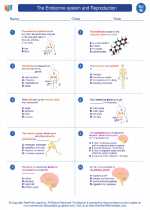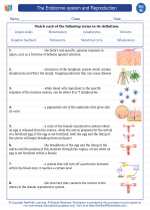Pituitary
The pituitary gland, also known as the hypophysis, is a small, pea-sized gland located at the base of the brain. It is often referred to as the "master gland" because it produces and releases several hormones that regulate the functions of other endocrine glands in the body.
Anatomy of the Pituitary Gland
The pituitary gland is divided into two main parts: the anterior pituitary (or adenohypophysis) and the posterior pituitary (or neurohypophysis). The anterior pituitary is composed of glandular tissue, while the posterior pituitary is made up of nerve tissue.
Functions of the Pituitary Gland
The pituitary gland plays a crucial role in regulating various bodily functions, including:
- Stimulating growth and development
- Regulating metabolism
- Controlling the production of hormones by other endocrine glands
- Regulating water balance in the body
- Supporting reproductive functions
Hormones Produced by the Pituitary Gland
The pituitary gland secretes several important hormones, including:
- Human Growth Hormone (HGH): Stimulates growth, cell reproduction, and regeneration
- Thyroid-Stimulating Hormone (TSH): Stimulates the thyroid gland to produce thyroid hormones
- Adrenocorticotropic Hormone (ACTH): Stimulates the adrenal glands to produce cortisol
- Prolactin: Stimulates milk production in females
- Antidiuretic Hormone (ADH) and Oxytocin: Produced in the hypothalamus and released from the posterior pituitary to regulate water balance and stimulate uterine contractions during childbirth
Disorders of the Pituitary Gland
Disorders of the pituitary gland can lead to hormone imbalances and various health problems. Some common pituitary disorders include:
- Acromegaly: Excess production of growth hormone in adults, leading to enlarged body parts
- Hypopituitarism: Insufficient production of pituitary hormones, causing various symptoms depending on the affected hormones
- Pituitary Tumors: Benign or malignant growths in the pituitary gland that can affect hormone production and cause pressure on surrounding structures
- Diabetes Insipidus: Insufficient production of ADH, leading to excessive urination and thirst
Study Guide
To effectively study the pituitary gland, it's important to focus on the following key points:
- Understand the anatomy of the pituitary gland, including its structure and the division into anterior and posterior parts.
- Learn the functions of the pituitary gland and how it regulates various bodily processes.
- Memorize the hormones produced by the pituitary gland and their respective functions in the body.
- Explore common disorders of the pituitary gland and their impact on overall health.
Additionally, creating visual aids such as diagrams or flashcards can help reinforce your understanding of the pituitary gland and its role in the endocrine system.
By mastering these concepts, you'll have a solid grasp of the pituitary gland and its significance in maintaining hormonal balance and overall health.
.◂Science Worksheets and Study Guides Eighth Grade. The Endocrine system and Reproduction

 Worksheet/Answer key
Worksheet/Answer key
 Worksheet/Answer key
Worksheet/Answer key
 Worksheet/Answer key
Worksheet/Answer key
 Vocabulary/Answer key
Vocabulary/Answer key
 Vocabulary/Answer key
Vocabulary/Answer key
 Vocabulary/Answer key
Vocabulary/Answer key
 Vocabulary/Answer key
Vocabulary/Answer key
 Vocabulary/Answer key
Vocabulary/Answer key
